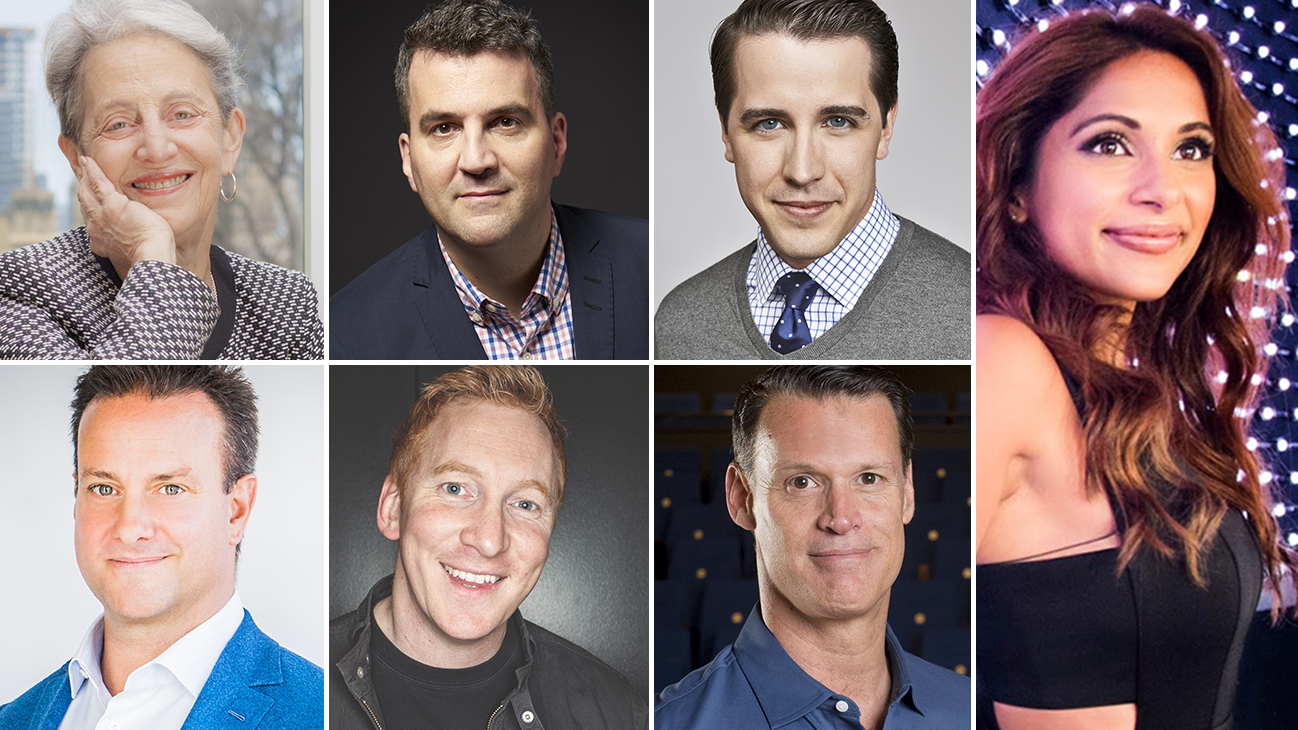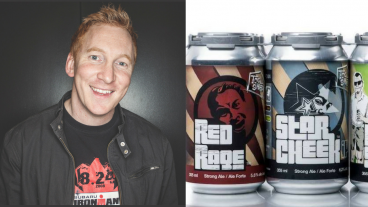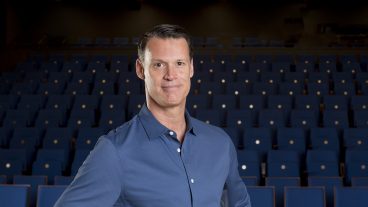This year’s Showcase event features an amazing line-up of outstanding speakers sharing insights into the worlds of geopolitics, innovation and disruption, leadership, mental health, and more.
We caught up with some of our 2019 speakers to get a sneak peek of what they’ll be talking about at this year’s event, including global events to watch in 2019, which industries are prime for disruption, the one habit that can immediately enhance our performance, and more.
See a round-up of content below and click on each speakers name to see more from them.
Fewer people have a better understanding of what’s really happening around the world than Professor Janice Gross Stein. She is currently the Belzberg Professor of Conflict Management and Negotiation and the founding director of the Munk School of Global Affairs at the University of Toronto.
WE ASKED: What or who should people be watching in 2019?
Stein: Watch the elections for the European Parliament to get a temperature reading on the endurance of right-wing populism in Europe’s politics. And, of course, the never-ending Brexit. Read more.
Named one of Canada’s “most influential Marketers” by Marketing Magazine, Max Valiquette has sat at the forefront of what’s now, what’s new, and what’s next for more than 20 years. He is an award-winning marketer and market researcher who has worked with some of the biggest companies in the world to transform their organizations, their businesses, and their brands.
WE ASKED: What industries specifically you think are prime for disruption?
Valiquette: Here’s three picks that aren’t financial services and automotive, because everyone is talking about them already:
- Weddings. You heard me. Weddings, in North America, made more than 80 billion USD industry last year, up by around five billion from the year before. But even as we’re spending more on weddings, themselves, we’re spending less on wedding planners than we used to. Millennials and Gen Z are much more DIY about this sort of thing than previous generations — they’re used to Evites and Facebook Events, and are already handling much of this sort of thing with the aid of some tech, usually in the form of an app. The wedding business is ripe for some sort of disruption.
- Law. It’s simply too traditional not to be disrupted. There will always be lawyers (there will always be lots of lawyers!) but the legal industry will face its first real disruptive threats in the near future, as technology, and AI in particular, changes how expensive and accessible a “lawyer” can be (especially for simpler legal tasks).
- Health. Healthcare is changing and, in some cases, is already being disrupted by non-traditional medicines. But traditional medicine is due for some disruption, too. Wearables, in particular, are going to change how we’re monitored, diagnosed, and from whom we expect our front-line healthcare. Visiting a traditional doctor’s office has been ripe for disruption for some time and an older, less mobile population who are able to wear devices that provide a fair amount of data could change how and when we need to “see” our doctors.
With more than five million views, Mark Henick’s TEDx talk, “Why We Choose Suicide,” is among the most watched in the world. His story of searching for “the man in the light brown jacket” who saved his life from a teenage suicide attempt captured global attention, and he has dedicated his life from an early age to opening minds and creating change.
Mark’s talks are informed by his direct experience with stigma and the mental health care system, and he brings his diverse and unique perspective to every audience as someone who has been a patient, a professional, a policy influencer, and a public figure in the mental health system. Read more.
Dr. Greg Wells unlocks the secrets of elite athletes to help us all learn how we too can perform at our highest level possible and excel at our chosen craft, whatever that may be. A scientist and physiologist, he has worked with some of the highest performing athletes across the globe — including Olympians and world champions — and is a veteran endurance athlete himself.
WE ASKED: What is one habit people can adapt today to see improved performance in their day-to-day life?
Wells: The strategy that most people are struggling with right now is giving themselves permission to sleep. When we sleep, our bodies repair and regenerate. The brain cleans itself out. We consolidate our memories and we learn while we sleep. And we increase our creativity and problem solving. Sleep is the foundation of a high-performance life. Read more.
Graham Sherman is a self-professed “high level geek” who has used his love of technology to help him master the craft of brewing artisan beer. Together with his business partner, Graham launched Tool Shed Brewery six years ago, and has never looked back. Speaking on what it takes to be a successful entrepreneur, Graham’s passion comes through in every talk. Read more.

Mark Tewksbury first burst on to the scene as a record-breaking Olympic swimmer. His 16-year athletic career included 21 national titles; 7 world records; Olympic gold, silver, and bronze medals; numerous awards; and a cover appearance on TIME magazine.
While sporting achievements contributed to his early success, it’s Mark’s post-Olympics life that has truly defined him. Mark came out as Canada’s first openly gay sports star almost 20 years ago, and has been a leader and mentor in the global LGBT human rights movement ever since. He is currently the Chair of Special Olympics Canada and is a director for the Canadian Olympic Committee.
WE ASKED: You’ve worked with Debbie Muir on the Great Traits program for the past decade helping people and leaders perform at their best. What is one underrated quality people possess that can make them a great leader? Is there an overrated quality that isn’t as good as people think?
Tewksbury: I think the most underrated quality is self-awareness. We believe leadership is ultimately about helping others be their best, which is very difficult to do if you are not aware of what is going on with yourself in the first place. Our programs begin with self-awareness, so that you can get yourself out of the way and be your best for those you lead.
In terms of overrated qualities, we have seen a shift from a more command and control style leadership to a connect and collaborate style. I think needing to be the boss that knows and controls everything is highly overrated and a sign of the past. Business success requires the ability to move in and out of teams in an ever-changing landscape — connecting and collaborating with people even better than you to meet business challenges. It’s not that you need to know everything, you have to have people on your team that round out the answers. High performance sport moved to an integrated support team model to leverage the strengths of the vast expertise within the system, to great success. Read more.
Sangita Patel’s love for math and science originally led her to earn a Professional Engineering Designation, before turning to her true passion, television. Now she is one of the most engaging media personalities in Canada as a reporter for one of TV’s top entertainment shows, ET Canada, and the host of HGTV Canada’s high-stakes show, Home to Win.
WE ASKED: Who was your favourite person to interview on ET Canada?
Patel: There’s been so many, but the ones that surprised me were: Tom Cruise, my last interview with him was in Paris overlooking the Eiffel Tower; George Clooney, who pulled out his phone to show me his twins; and Dwayne “The Rock” Johnson — we’re friends!
But then there are the actors/artists who share their vulnerable side, which always gets me. To have the opportunity to tell their stories is why I love doing my job. Read more.










